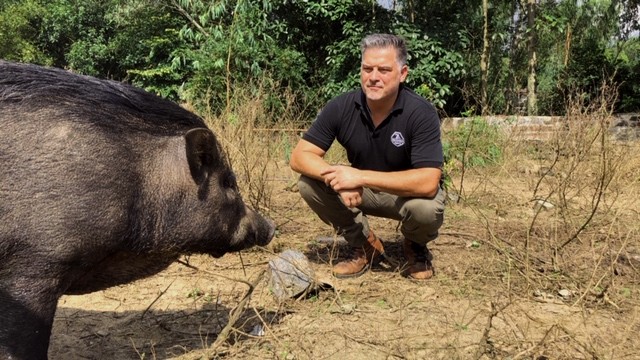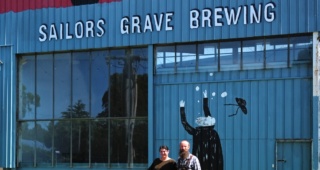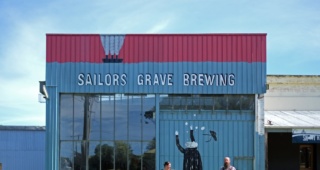“Let me show you something. This is the future.”
Bunkered down in the 7 Bridges Brewing Company Hanoi taproom—he’s living there for a few weeks during Vietnam’s lockdown—Stanley Boots briefly leaves our Zoom chat and returns fumbling with the contents of a brown paper bag. I expect, perhaps, a sneak peek at the brewery’s new branding, or maybe the reveal of, say, a locally foraged yeast that’s going to transform 7 Bridges beer. Something like that.
No—it’s a misshapen bagel, a prototype Boots says he developed yesterday.
“Many pizza places just say that all the dough leftover at the end of the day has risen too much, then dump it. As you know, we already make our pizzas with spent grain from our brewing process, so now we’ve gone one more step,” explains Boots, whose white-rimmed glasses match short hair and patchy facial hair that’s more salt than pepper. “Not only will we not throw out our spent grain, now we’ve got an easy process to take that unused pizza dough and convert it to a kind of bagel that actually tastes really great.”
Life during the Covid-19 pandemic has been anything but dull for Boots. It all started on March 5, when two British tourists who were on the same flight to Hanoi as an infected passenger visited the 7 Bridges taproom in Da Nang. After those two tested positive for Covid-19, the Vietnamese government closed the taproom and about 40 staff members (and their families) went into mandatory two-week quarantine. 7 Bridges became Vietnam’s first beer company to suffer temporary closure due to pandemic-related issues.
Some staff camped out at the brewery, which is about 20 kilometers from the taproom, while others did so at the bar; Boots stayed home. Local police and health officials visited everyone twice daily to check body temperatures and look for Covid-19 symptoms. Those staff members who came into closest contact with the infected tourists were tested. After two weeks, the entire staff was cleared and allowed to leave quarantine.
With social distancing measures in place, the Da Nang taproom resumed business on March 21, but the world was taking a turn for the worst. Just two days after reopening, Boots voluntarily closed both 7 Bridges Brewing Company taprooms and began delivery and takeaway service. The turning point, he says, came as he watched a clip of a doctor in Italy describing the country’s unfolding horror. “I just decided that we are not contributing to this. It’s our obligation,” he says.
Related: Last Pour — Bonus Quotes from 7 Bridges Brewing Company
Boots flew to Hanoi to help that team with the transition—and then Vietnam announced a country-wide lockdown from April 1 to 15. Da Nang police officials informed Boots that he’d be quarantined for two weeks at a public facility if he came back. Staying in Hanoi was the easy decision, even though it meant being away from family.
“This was going to be our big year. We’d grown 100-percent year over year for the past two years, and so many pieces were starting to come together, and then suddenly bam!” says Boots. “But it’s okay. It’s given us a chance to reflect on our true mission and what our business is all about. We’re using this time now to really focus on the community side of who we are. We said if there was ever a time for us to pivot, to change, and to do the things necessary to make it happen, now is that time. Let’s go. Let’s just get it done.”
Building Bridges
Da Nang is located in central Vietnam at the mouth of the Han River, on the shores of the East Vietnam Sea. Beautiful beaches stretch down the coast for endless miles in both directions, and have only in recent years been encroached here and there by massive resort-style development. (It’s heartbreaking to see.) Leafy hills and mountain ranges tinted brilliant shades of tropical green rise and fall behind and to the north of the city, which sprawls in blocky concrete tumbles on either side of the river. Downtown Da Nang itself isn’t much to look at, but the backdrop makes up for it.
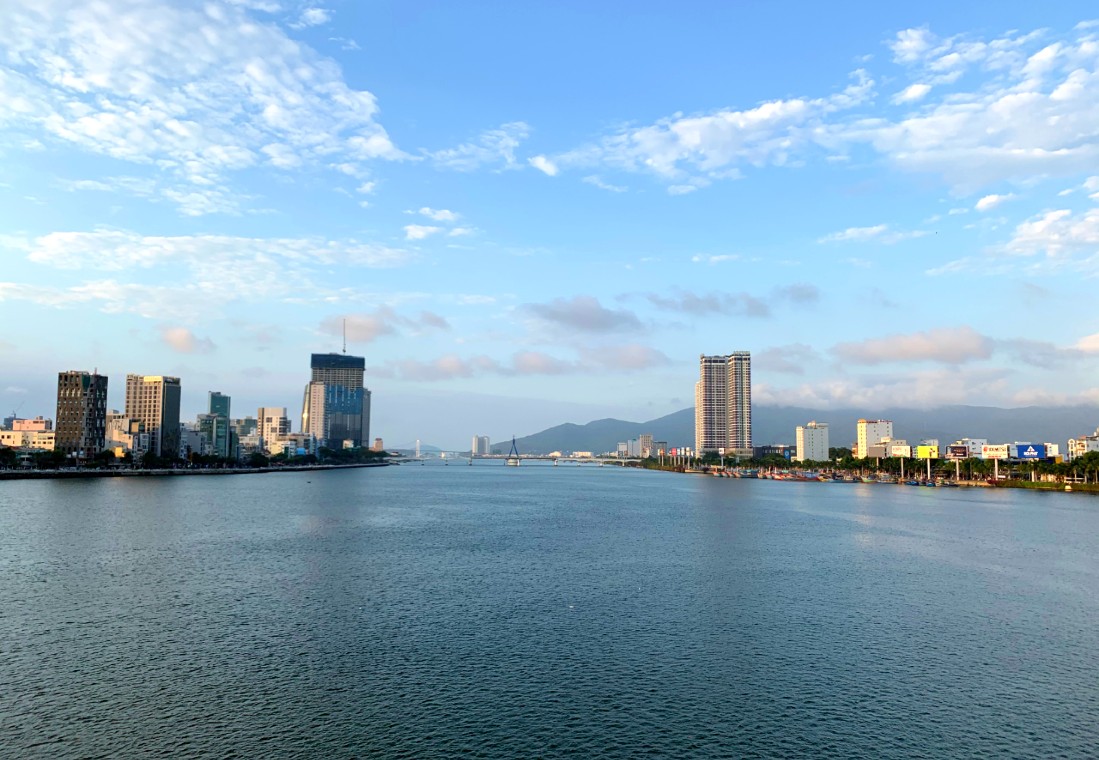
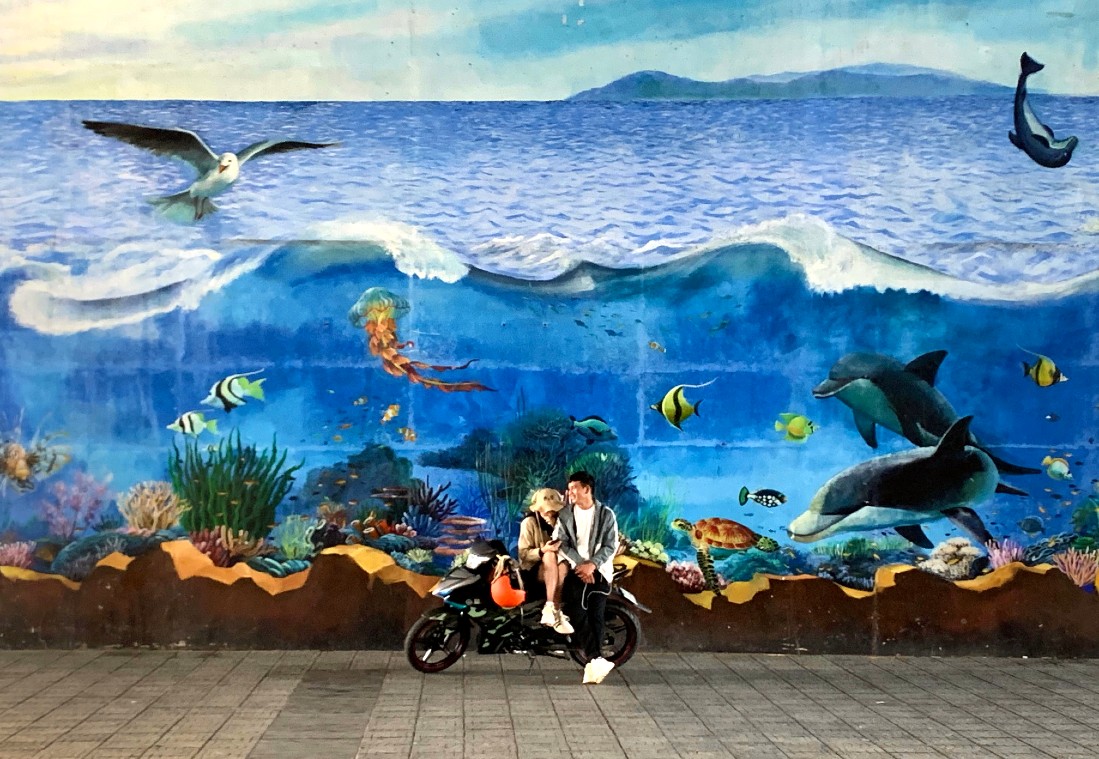
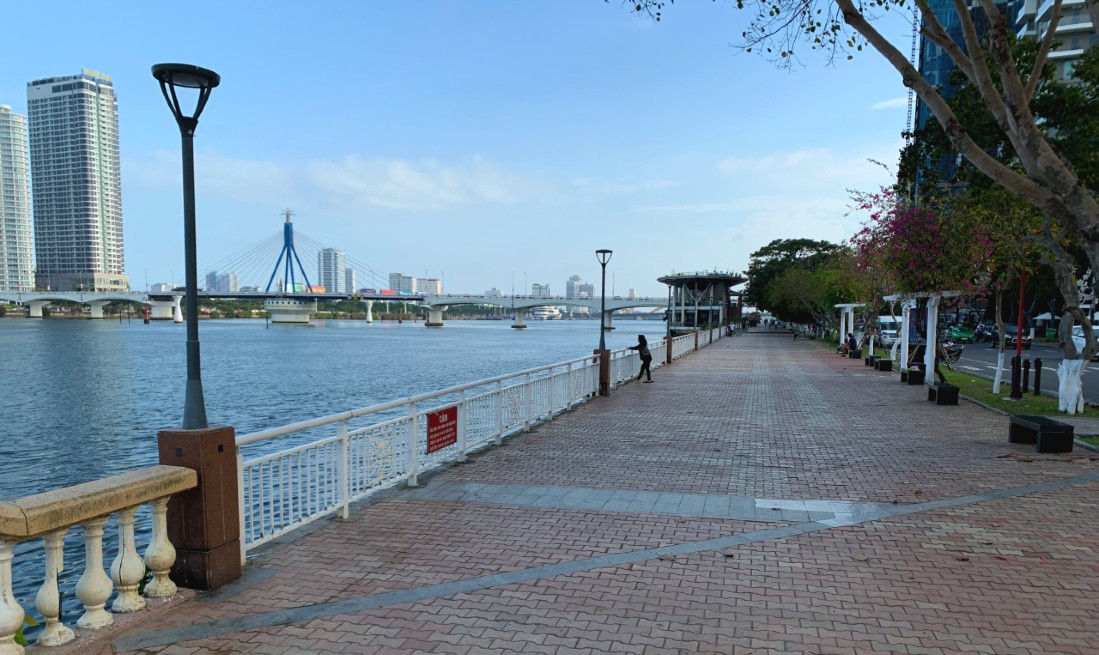
Vietnam’s fifth-largest city is for many visitors a first fleeting contact, not an end point. Of more interest to the average tourist on the average Vietnam circuit is the ancient imperial city of Huế, which lies about 100 kilometers north of Da Nang, and even more so Hội An, 30 kilometers south, where the Ancient Town—an undeniably pretty area, yet one ravaged and transformed for the worse by Mass Tourism’s crushing foot—earned UNESCO World Heritage Site status in 1999.
In other words, people tend to already have one foot out the door the minute they land at Da Nang International Airport, and that’s a shame. There isn’t much “to do” in Da Nang but aimlessly wander, but what a sensory pleasure it always is to walk, walk, and walk some more through mid-sized Southeast Asian cities like this one, anonymous, nowhere to go and nothing to do, a foreigner in a foreign place among relatively few other (Western) foreigners.
When you do stop to “do” something in Da Nang it is often to feast. As the biggest city in central Vietnam, Da Nang is the de facto melting pot for the region’s many specialties, which include but are hardly limited to banh xeo (fried and stuffed pancakes), cuon he (lightly fried Hue-style spring rolls), bun cha ca (fish cake noodles), mi quang (noodles), banh trang cuon thit heo (DIY-style rice paper rolls), and of course seafood freshly pulled from the sea.
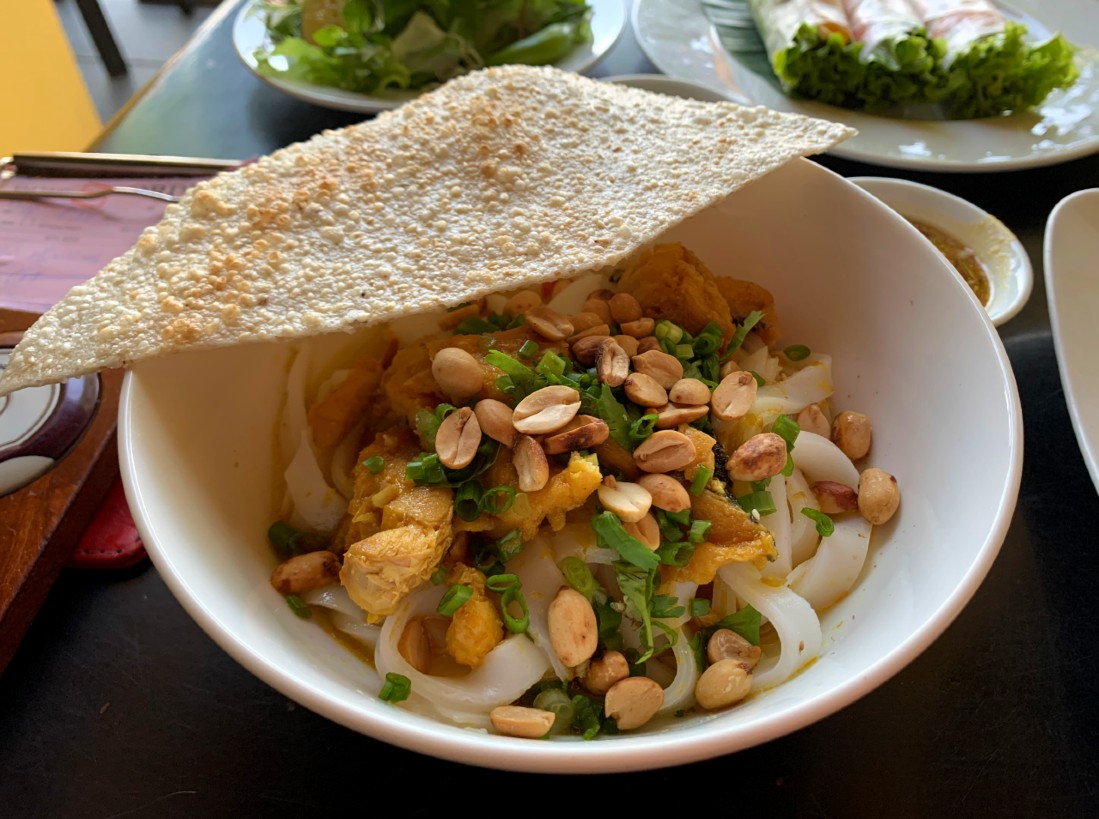
And when the sun begins to set on Da Nang and nothing sounds better than a cold beer, there’s now a locally brewed alternative to the pervasive—and perfectly fine—drops of Huda, 333, Biere Larue, and other Vietnamese macro lagers. “We figured Da Nang was an up-and-coming city, a centrally located port city that will further develop in the future,” says Boots, an American expat. “It didn’t have a craft beer company, so we wanted to be the first ones there.”
Boots is a trained biologist who got his start in the conservation sector. He became an environmental educator for some time, then went to law school with the goal of eventually running an environmental organization. Before long he ended up in Asia, where he began advising various governments on development infrastructures; he also started homebrewing in a Hanoi garage.
Related: In Byron Shire, a Village Brewery Soaking Up the Thirsts of the Land
When it came time to take the leap into commercial craft brewing, Boots approached Da Nang officials about the rare possibility of a fully foreign-owned startup opening in their city. He was already advising them on start-up ecosystems and foreign-direct investment, and felt that doing the registration for his planned beer company in Da Nang would be a show of good faith.
It took some convincing. Nobody knew anything about craft beer, for one, and Boots says he had to do a serious sales job on the “game-changing” benefits his eco-friendly company would introduce. Once he was allowed to apply, it took about six months to earn licensing approval.
7 Bridges Brewing Company opened in April 2017 with a taproom located in a prime spot on the Han River’s eastern bank, just off the city’s famous Dragon Bridge. Other power player domestic craft breweries like Heart of Darkness Brewery and Pasteur Street Brewing distribute in Da Nang these days, too, but 7 Bridges is still the only local operation. Of course, being first in a niche market like craft beer is a mixed bag.
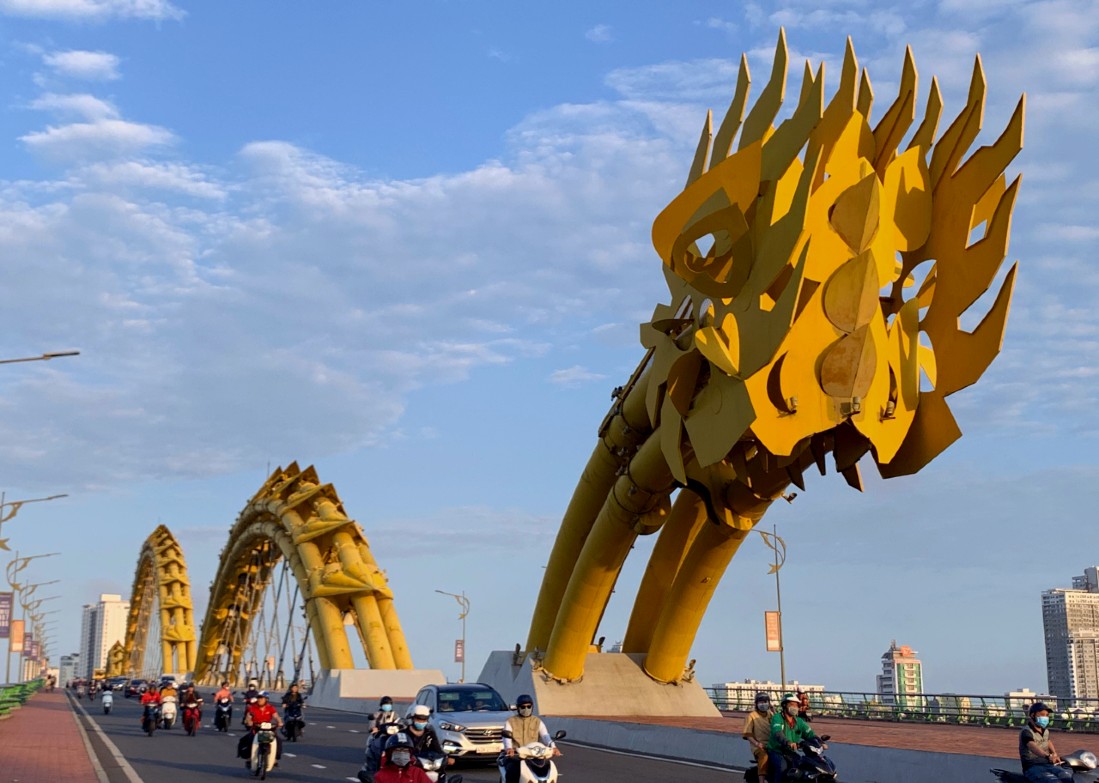
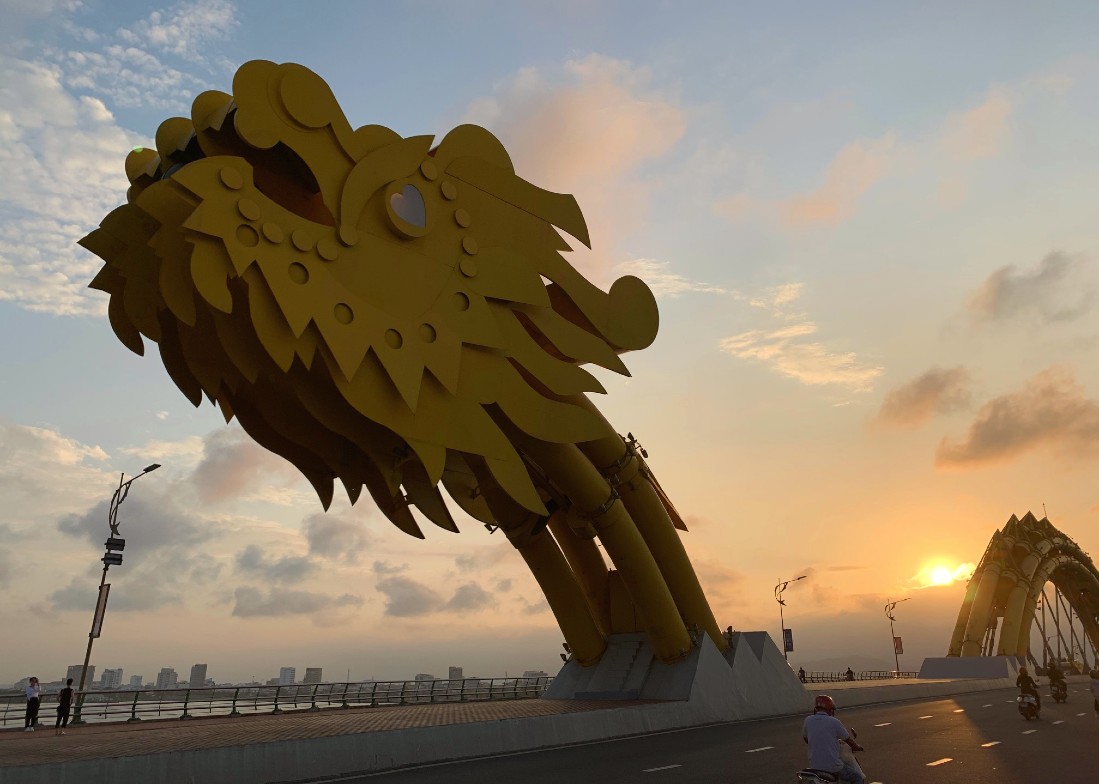
Locals here certainly contribute to the country’s robust beer market. According to a November 2019 report by The British Business Group Vietnam, within Asia Vietnam trails only China and Japan in per-capita beer consumption at 64.9 liters, and that number is expected to rise another 8 liters by 2022. All told, the country’s projected beer consumption last year was just under 5 billion liters.
So no, it’s not that Da Nang doesn’t drink.
“We do not have a well-developed craft culture amongst locals. We’re way behind Ho Chi Minh City, and even Hanoi, in terms of the number of local drinkers who understand and enjoy craft,” says Boots. “Da Nang is very famous for being a city that’s a little tight on the spending—many drinkers, but they like to drink cheap beer. We’re not providing a beer that you can drink heavy, and it’s not super cheap. That’s a downside.”
Tourism has helped 7 Bridges Brewing Company hold down the Da Nang fort as it searches for a bigger local audience. Western travelers don’t usually spend more than a night or two in the city before moving on, but Boots says they often make the taproom one of their first stops. When I visit in February, the place does brisk business to a crowd that is indeed probably 90-percent Western.
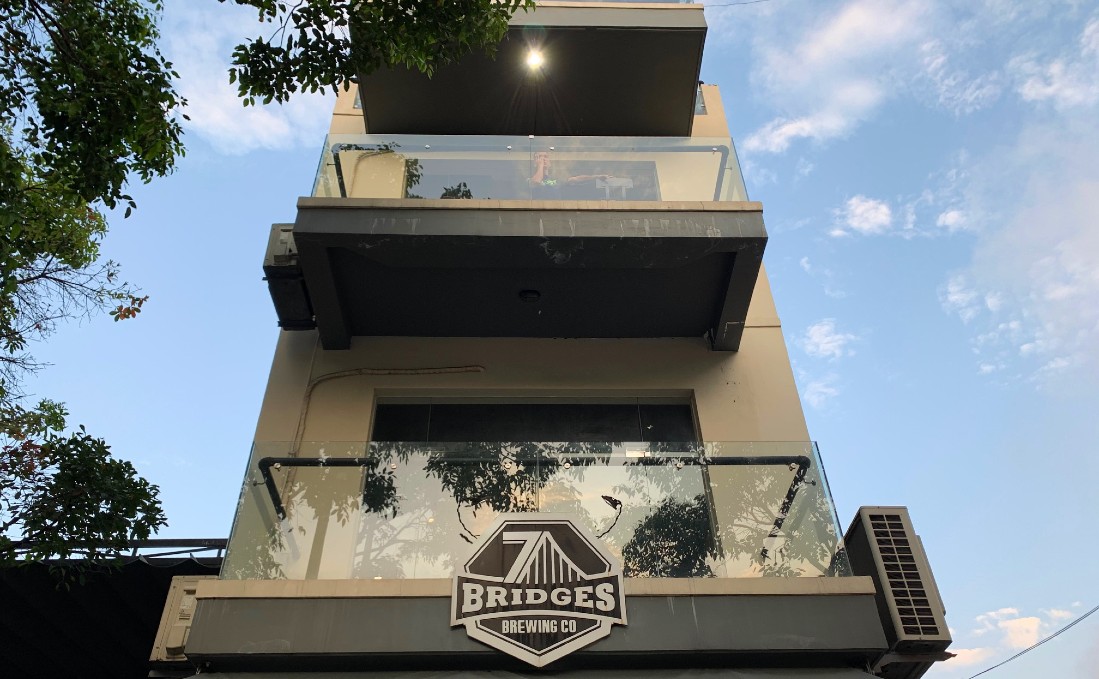
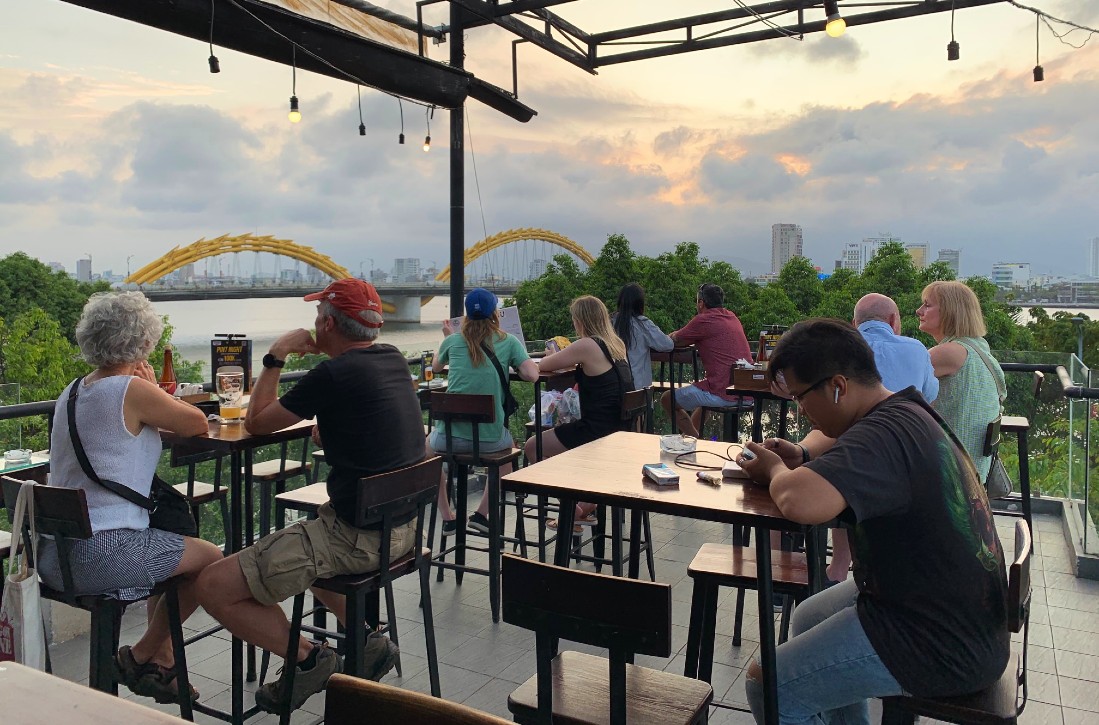
February feels like a long time ago, though, doesn’t it? Vietnam barred foreign visitors indefinitely on March 22 due to the pandemic, and domestic tourism only just reopened in mid-May. “I think the word for that is ‘ouch.’ If tourism doesn’t come back, the question is whether we have enough other kinds of customers to support us, and I don’t have the answer for that yet,” says Boots. “Obviously we recognize that our future must always lie with Vietnamese drinkers and bringing them into craft.”
Zero Garbage, Zero Waste
Prior to the pandemic 7 Bridges Brewing Co distributed to more than 160 venues across Vietnam—that number may have fluctuated some since then—and exports to Cambodia, Singapore, Thailand, and China. It bagged four awards at the 2018 Asia Beer Championships, including a silver for its Dragon Coil IPA and gold for the Imperial IPA; the latter took gold in 2019, too, when the brewery was also named Champion Midsize Brewery in Asia. When I visit the Da Nang taproom 20 beers are on draft, including five IPAs, a few wheats, and more aggressive brews like an 11% American barley wine, 12% Belgian strong ale, and 7.2% Ardenne-style saison, which is fermented with wild yeast.
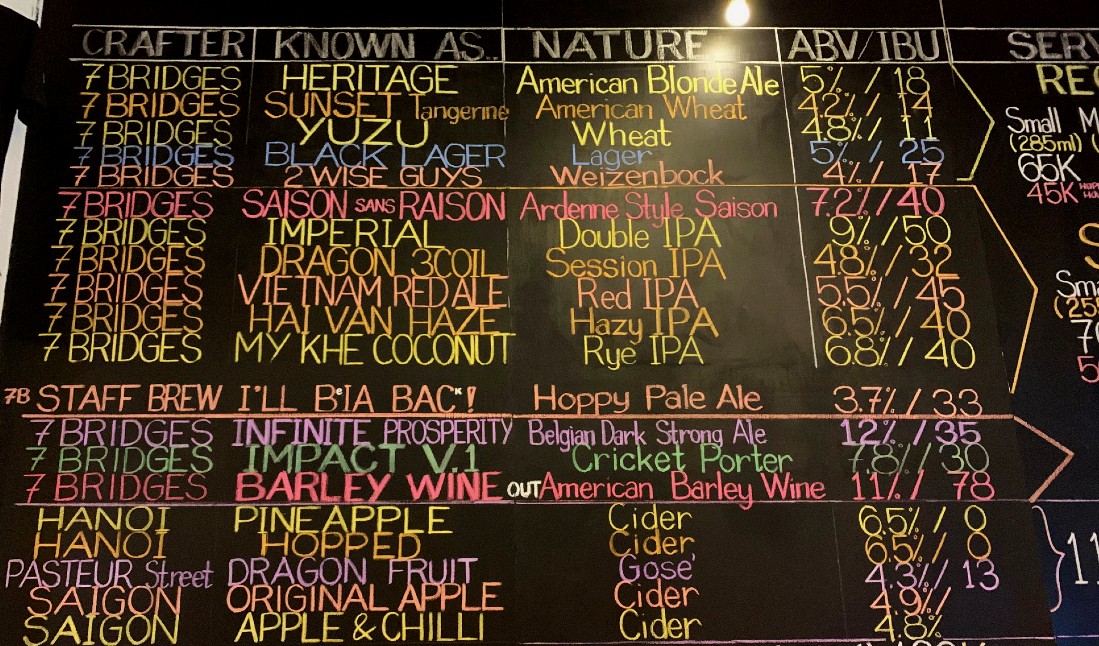
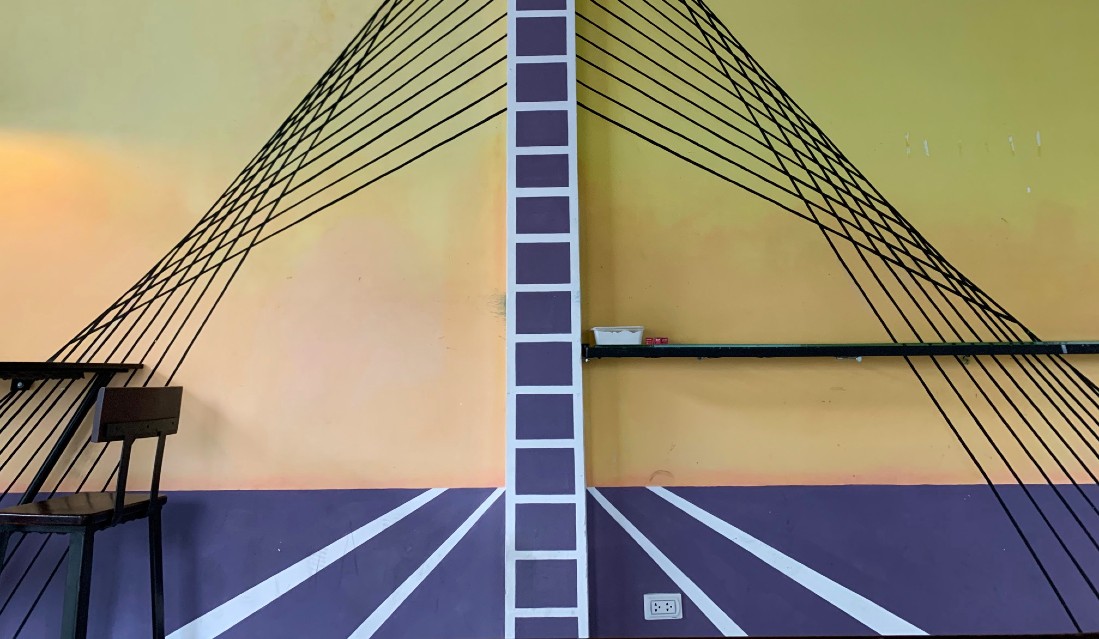
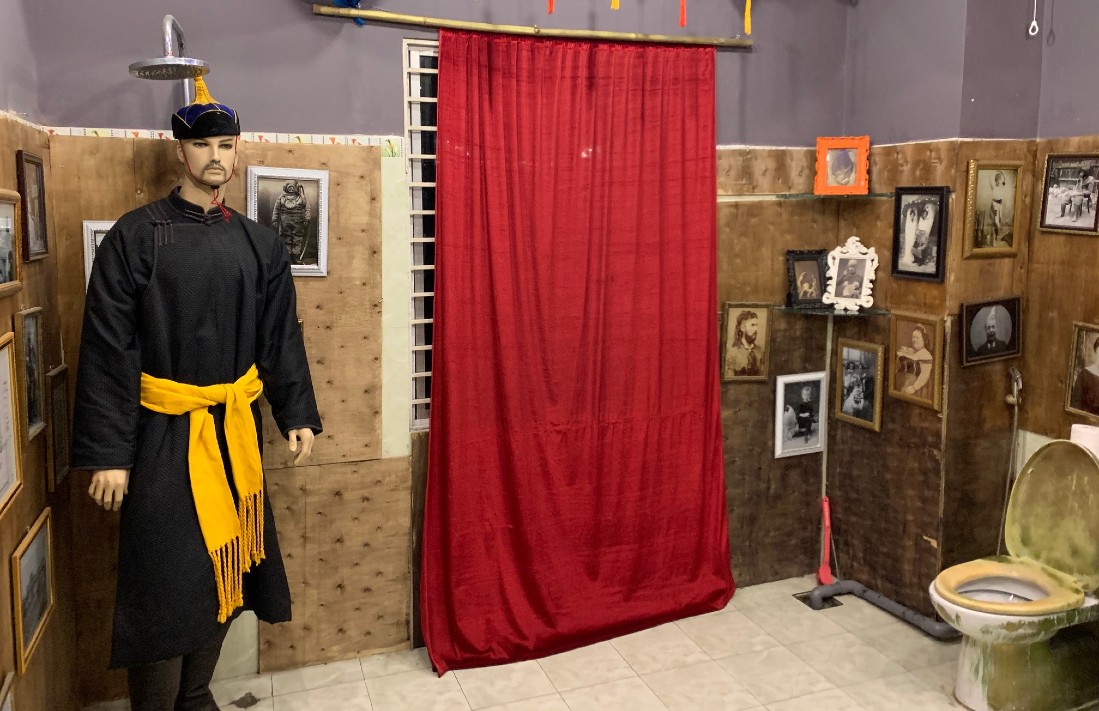
The beer itself seems to be the least of Boots’ concerns for 7 Bridges Brewing Co, which isn’t to say it’s not a priority. “We are a craft beer company—we have to produce good beer, first and foremost. I’m not a purist to say that you can’t use adjuncts like rice and stuff like that because it’s not about us masturbating to ourselves,” says Boots. “It’s about us meeting what the market really wants, but also staying true to our core. We make craft, and as long as we’re not making garbage, I’m happy.”
Related: In Ho Chi Minh City, East West Brewing Company Brings Craft Brewing Downtown
The impetus to focus on the Vietnamese market and its wants is even greater today. Boots tells me that he and his team are considering the economics of two potential projects that are “more fun and localized” and could potentially reach a wider audience with a lower price point. They’re still up in the air, and would still need to meet the brewery’s quality standards. When I ask him what would make a beer specifically Vietnamese, he tells me about the idea for a farmhouse ale that came to him one day during lunch in Hanoi.
“I was eating these noodles with all the various herbs, and at the same time I started wondering what a farmhouse beer developed in the mountains of Vietnam with kviek yeast would taste like,” he says. “Two days later I brewed what I called a Vietnam farmer’s ale. It was a kveik-based ale that I did in an older German-style, like I did a stepped mash as if I was doing it on hot pots with fire. I added honey and various herbs and fruits during the whirlpool, and it turned out really well. A number of Vietnamese had it and were so excited, said it tasted so familiar. To me, that is a uniquely Vietnamese beer.”
7 Bridges Brewing Co recently partnered with Vietnam-based Cricket One on IMPACT v.1, a 7.8% porter brewed with cricket protein powder; there’s the equivalent of about one cricket in every glass of it. It is this beer that perhaps embodies the 7 Bridges ethos more than any other. First, it’s a collaboration with a company in Cricket One that shares the brewery’s focus on sustainability and environmental responsibility. It also gives back—all accumulated profits from the beer will be used to support the non-profit organization Save Vietnam’s Wildlife and its efforts in Pu Mat National Park.
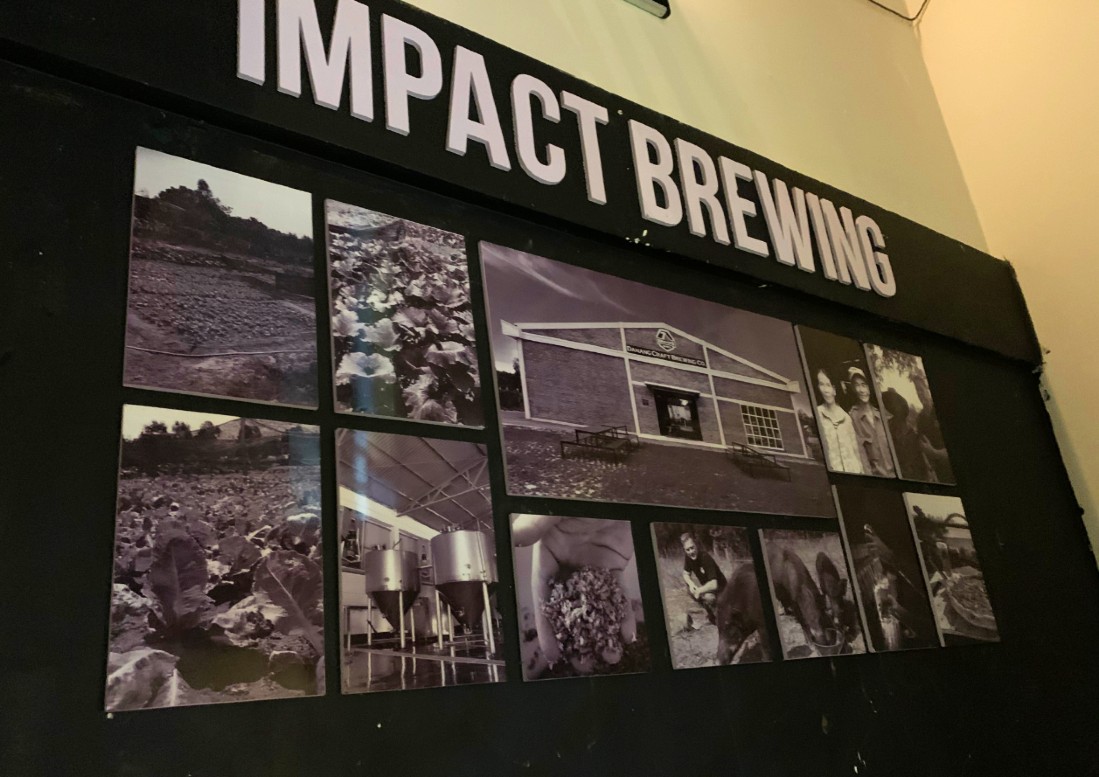
Boots is happy to talk about beer, but to him brewing good beer is, again, just a given and only part of his brewery’s responsibility. In many ways, 7 Bridges Brewing Co is the realization of his goal years ago to manage an environmental organization. “Zero waste is our first platform. Everything we do should result in no permanent or long-term negative impact on the planet,” says Boots. “We have done everything we can to convert all waste product into value-added products, and to remove or reduce certain processes that would dump waste into the water system.”
The brewery recycles wastewater and repurposes used oil from the taproom kitchen into soap. Dregs left from the brewing process are used to make malt vinegar and hot sauces that are sold by the bottle. No solid or liquid waste leaves the brewery. And during the pandemic, instead of being fired or furloughed due to huge drops in sales and distribution, many of the brewery’s 50 employees voluntarily reduced their salary and were reassigned to work part-time at the 7 Bridges Organic Farm to further cultivate the land, work on a new irrigation system, and improve the zero-waste systems.
“From day one we said we’re going to attack this and won’t let profit motive tell us we cannot do this,” says Boots. “Not knowing the industry meant that I was totally free in my mind; I didn’t have any shackles on telling me what I couldn’t do. And when people who knew more than me told me we couldn’t do it, we didn’t listen. I’m proud that we’ve done that.”
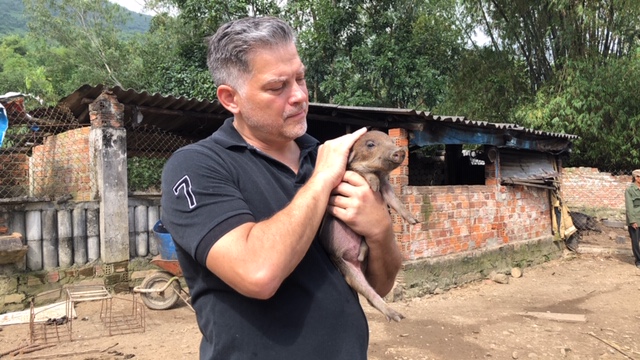
The brewery also dedicates time and resources to such community projects as beach clean-up days, offering free beer at the end of the day to anyone who joins the staff for a day collecting garbage. “We still have millions of tons of garbage going into the ocean every year, so picking up garbage on a beach won’t change that, but it will change your consumption patterns,” Boots says. “We want our brand to be associated with those people in the community who really are caring, really challenging themselves individually, and challenging for a brighter future.”
Back to the Future
The 7 Bridges Brewing taproom in Hanoi didn’t do much delivery business during the lockdown. On a good day Boots says he’d sell five or six pizzas, and that the best day for draft beer sales was the equivalent of about three cases; he didn’t move a single pizza the day before we talk.
That meant even more time for Boots to, in his words, “reflect on [the brewery’s] true mission” and make changes in Hanoi that aligned with it. He found and fixed several inefficiencies in the taproom kitchen. He honed the new delivery system, experimenting with fun extras like sending customers shots of their pizza as it baked in the oven.
He began turning an undeveloped space in the taproom’s backyard—one previously earmarked for a beer garden—into an urban farm complete with chickens. He started building a vertical vegetable garden in the front of the taproom. He developed a new zero-waste menu with dishes that feature the brewery’s hot sauces, housemade fermented foods, and herbs from the forthcoming garden. He says that in addition to the bagels there will be other products made from unused pizza doughs.
A friend helped Boots learn how to weld, too, a necessary skill for him to transform the taproom’s basement into what he believes will be Vietnam’s first dedicated sour beer program. The highlight, he says, will be a “gigantic industrial refrigerator with three glass doors” repurposed into a vessel in which he’ll float a coolship, which is basically a flat, open vessel used to cool wort and ferment the resulting beer with yeasts and bacteria in the air.
Oh, and Boots also found time to moonlight as Dr. Erectus HardenBrucken, demonstrating on a beer bottle how to use one of the beer condoms that were included for free in delivery orders.
More than just physical improvements, life in quarantine and under lockdown has given Boots time to think about what 7 Bridges Brewing Company and things like exporting should look like when we come out on the other side of this, well, let’s just call it this fucking pandemic. “I’m hopeful that people will reflect, ask themselves what’s important in life, and then maybe we can start asking for a different world when we come out of this first wave of Covid-19,” he says.
“Life is not the same, but I’m a very positive person for the most part. They say our biological mandate is to overcome environmental stresses, so if we don’t, we fall off as a species.”
###
In Da Nang, 7 Bridges Brewing Company is located at 493 Trần Hưng Đạo, An Hải Trung, Sơn Trà. +84 362 900 123. 7 Bridges Brewing Company Hanoi is at 104 Xuân Diệu, Quảng An, Tây Hồ. Both venues are open daily from 2pm – 11:30pm (Sundays 11pm).
Photos of Stanley Boots courtesy of 7 Bridges Brewing Company. All other photos by author and copyrighted by Beer Travelist.


